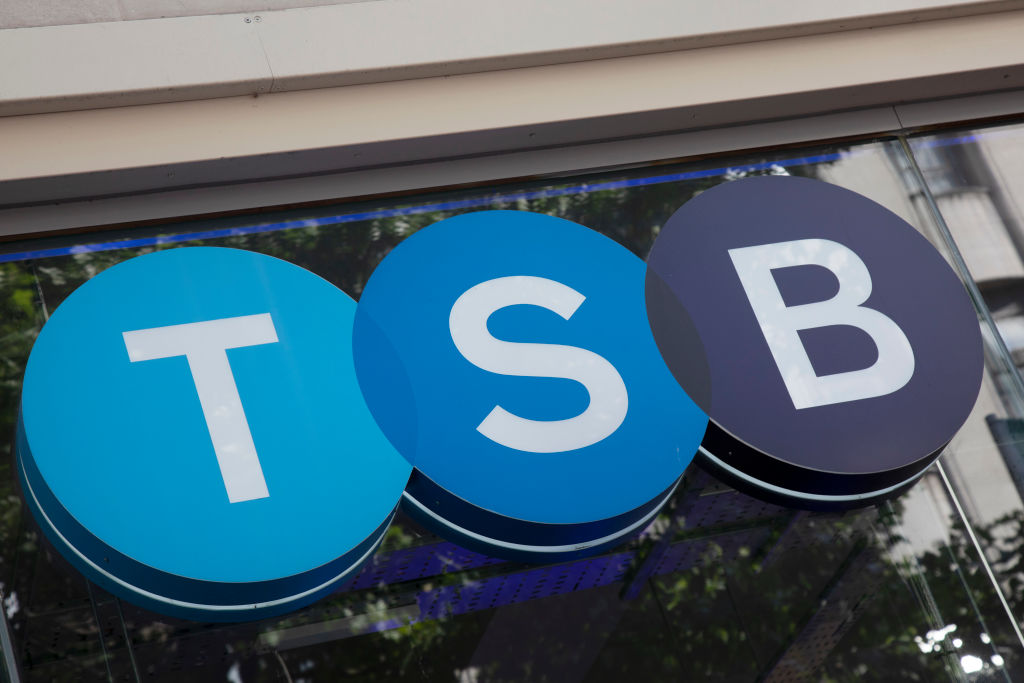TSB profits hit by lower mortgage margins - this is what it means
The high street bank said its profits had been impacted by "challenging" market conditions. What is the outlook for TSB?


Get the latest financial news, insights and expert analysis from our award-winning MoneyWeek team, to help you understand what really matters when it comes to your finances.
You are now subscribed
Your newsletter sign-up was successful
Want to add more newsletters?
Profits at TSB dropped by almost a quarter in the six months to the end of June on the back of lower margins from the UK lender’s mortgage business.
The high street bank, which is part of Spain's Banco Sabadell, posted pre-tax profits of £111.6 million during the period, down 24.5% against the same six-months a year earlier.
While the fall may have put the spotlight on banking stocks, Banco Sabadell’s share price rose by more than 1% on Tuesday.
Try 6 free issues of MoneyWeek today
Get unparalleled financial insight, analysis and expert opinion you can profit from.

Sign up to Money Morning
Don't miss the latest investment and personal finances news, market analysis, plus money-saving tips with our free twice-daily newsletter
Don't miss the latest investment and personal finances news, market analysis, plus money-saving tips with our free twice-daily newsletter
TSB said income was impacted by lower mortgage margins due to "challenging" market conditions in the face of high interest rates, while the company also paid out significantly more interest to its savings customers.
The half-year results came as separately thousands of homeowners took TSB to court in the first case of its kind that highlights the plight of so-called mortgage prisoners.
UK interest rates are currently sitting at a 16-year high of 5.25%, meaning mortgage rates remain high. As a result industry body UK Finance said that it expects total lending for house purchases to fall by a further 8% this year to £120 billion.
James Tatch, head of analytics at UK Finance, says: “We expect lending to remain weak in 2024, with a gradual improvement in affordability reflected in a modest increase in activity levels in 2025.”
According to the latest Halifax HPI, covering June, house prices dropped by a modest 0.2% since May but rose annually for the seventh consecutive month. The lender said buyers are still facing affordability issues.
Amanda Bryden, head of mortgages for Halifax, says: “Mortgage affordability is still the biggest challenge facing both homebuyers and those coming to the end of fixed-term deals. This issue is likely to be eased gradually, through a combination of lower interest rates, rising incomes, and more restrained growth in house prices.”
TSB also said on Tuesday that it has made "good progress" against its current cost-cutting strategy. In May, TSB said it would shut 36 branches and cut 250 jobs as not enough customers were using the sites. Robin Bulloch, TSB's chief executive officer, said: "Our focus in 2024 is making TSB simpler and easier to bank with.”
Will the Bank of England cut interest rates this summer?
Barring any economic shocks, interest rates have peaked. The question now is how long the Bank of England will hold rates at 5.25%. The Bank of England has four remaining meetings this year, with the next announcement due to take place on 1 August.
Over the past few months, we have seen the MPC start to turn – however it remains visibly divided. In February and March’s meetings, one committee member voted for a rate cut. This increased to two committee members in May and June.
We have seen a marked shift in economists’ expectations too. In a poll conducted by Reuters in June, 63 out of 65 economists voted for August as the most likely month for a first cut. However, sentiment is far more mixed today.
Services inflation is the main factor that has driven this change, but wage growth is still coming in hot too at 5.7%. What’s more, May’s economic growth figure (0.4%) came in at double the rate expected when released on 11 July.
“This snapshot of an economy growing a bit faster than forecast, could make Bank of England policymakers that bit more reticent about voting for an interest rate cut on 1 August,” says Susannah Streeter, head of money and markets at Hargreaves Lansdown.
Get the latest financial news, insights and expert analysis from our award-winning MoneyWeek team, to help you understand what really matters when it comes to your finances.
Chris is a freelance journalist, and was previously an editor and correspondent at the Financial Times as well as the business and money editor at The i Newspaper. He is also the author of the Virgin Money Maker, the personal finance guide published by Virgin Books, and has written for the BBC, The Wall Street Journal, The Independent, South China Morning Post, TimeOut, Barron's and The Guardian. He is a graduate in Economics.
-
 Financial education: how to teach children about money
Financial education: how to teach children about moneyFinancial education was added to the national curriculum more than a decade ago, but it doesn’t seem to have done much good. It’s time to take back control
-
 Investing in Taiwan: profit from the rise of Asia’s Silicon Valley
Investing in Taiwan: profit from the rise of Asia’s Silicon ValleyTaiwan has become a technology manufacturing powerhouse. Smart investors should buy in now, says Matthew Partridge
